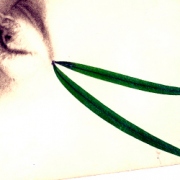
pierclaudio duranti
Ho sempre detestato trovare scitte disegni e tracce di vernice nei luoghi che amo fotografare finchè tornando in questo posto dopo qualche anno mi sono ricreduto. Qui è stato fatto un lavoro eccellente, alcune sono delle vere e proprie opere, questo bimbo mi ha emozionato! Pierclaudio Duranti
sabato 29 sett ore 19.00 Lugnano in Teverina – Frantoio il Molinetto foto proiezione narrazione.
La slow photograph si insinua tra i paesaggi industriali, spesso dismessi, vi si riconoscono Narni, Papigno e Terni. Lo sguardo è calmo, e prende il tempo della poesia.
Pierclaudio Duranti nasce a Terni nel 1971, dove svolge gli studi ed inizia a dedicarsi alla fotografia con passione. Scopre presto il fascino della polvere nella fabbrica di Papigno nel 1989, quando giovanissimo collaborando con una agenzia di moda locale utilizzava tali set come location per book e presentazioni. Da sempre attratto dalla fotografia analogica, grande formato e stenopeica, sperimenta lungamente la “slow photo”, una sorta di manifesto contro il consumo frenetico dell’immagine digitale e la riappropriazione del tempo per crearla. Si accorge presto del rapido trasformarsi degli ambienti industriali che lo affascinano, questi sistemi fragili, sottoposti quotidianamente ad ogni tipo di razzia delle materie prime e ad atti di vandalismo d’ogni tipo. Inizia quindi un vero e proprio lavoro di documentazione fotografica dei luoghi e dei macchinari sul territorio Ternano e nazionale tentando di coglierne la bellezza. In quei luoghi apparentemente vuoti e lasciati a se stessi, si possono trovare spazzi in attesa di essere scoperti ed essere vestiti da identità desiderose di parlare e dialogare, desiderose di appartenere ad un luogo che parli di loro. In questo ultimo anno espone al Caos di Terni una serie di fotografie analogiche in occasione del Festarchlab di Boeri con la mostra “Architetture dormienti e scatole luminose” dove si valorizza una certa estetica di urbanizazzione negli spazzi industriali come energia in potenza, contro un certo tipo di Anticittà della rapidità e il cubismo in calcestruzzo delle nostre zone periferiche urbane, della rinuncia alla città neoliberista dalla vaqua identità. Parallelamente alla sua attività di disegno stile e distribuzione all’ingrosso di abbigliamento per bambini collabora con diverse case di produzione. Nel 2010 nasce l’idea di attraversare le antiche rotte carovaniere del Sahara con l’editore audiovideo padovano RunningTv e ne scaturisce un viaggio di un mese in Libia e la prima pubblicazione del libro fotografico”Maldafrica”. Appassionato di montagna e scialpinismo, ora vive con la famiglia in campagna a Sangemini, dove ama prodursi verdura, frutta, olio e l’ottimo vino.
2010 “Maldafrica”, lungo le antiche rotte carovaniere, libro fotografico per “On The Road” ed. Running Tv International.
2010 Calendario ufficiale Novsaglass 2011
2011 Realizza le fotografie per lo studio del “Green cube” catalogo di GaTR per Terni Research.
2011 festarch lab mostra “città ed anticittà” al CAOS di Terni
2012 “i paesaggi dell’industria” in mostra a Milano
Industrial Poetic slow images
I always hated to find scrawls and traces of colour in places that I wanted to take pictures of until I changed my mind when I returned to this place after some years. Here, excellent works have been realized, some are true works of art, this boy has moved me! Pierclaudio Duranti
Saturday, September 29th 7 p.m. photographic projection
Lugnano in Teverina – Frantoio il Molinetto
Pierclaudio Duranti was born at Terni in 1971, where he studies and discovers his passion for photography. He soon discovers the fascination of dust at the Papigno factory where in 1989, as a very young man he works with a local fashion agency which used this set-up as a location for books and presentations. He always felt attracted by analogous photography in huge formats and slit-scan (stenopeic) photography and extensively experiments with “slow photography”, a kind of manifest against the frenetic consumption of digital pictures and for the re-appropriation of time to create images. He soon becomes aware of the fast process of transformation of industrial environments which fascinates him, fragile systems, constantly exposed to all kinds of exploitation of resources and acts of vandalism. Duranti reacts and initiates a true documentation of places and machinery both in the Terni area and the rest of the country in an attempt to capture their beauty … within these apparently empty and abandoned spaces, abandoned, but waiting to be discovered and clad with garments of identities eager to speak, to communicate, eager to belong to a place which would speak of them. During the last year, Duranti contributed to an exhibition at the CAOS in Terni with a series of analogue photographs in occasion of the Festarchlab of Boeri with the show “Architetture dormienti e scatole luminose” (Sleeping Architecture and Illuminated Boxes) where the emphasis points to certain esthetics of urbanization in industrial spaces. It conveys the energy of potentials as opposed to that particular anti-city of velocity and cubism of concrete of our urban peripheral areas, renouncing the meaningless neoliberal city devoid of identity. In addition to his activity in design, from style and distribution to wholesale trading of children’s clothing, he works with different production companies. In 2010, the idea was born to explore the old decaying caravan roads of the Sahara with the audiovideo editor RunningTv from Padua. This led to a four weeks’ trip to Libya and the first published book “Maldafrica”. Duranti’s passion for alpinism and skiing brought him to live with his family in San Gemini where he enjoys growing fruit and vegetable, oil and great wine.
2010 “Maldafrica”, following the old decaying caravan roads, photo book by “On The Road” publishers. Running Tv International.
2010 Official calendar Novsaglass 2011
2011 realizes photographs for the “Green cube” catalogue of GaTR for Terni Research.
2011 festarch lab show “città ed anticittà” alt CAOS of Terni
2012 “i paesaggi dell’industria”, presently in Milano
.
.
.
.

